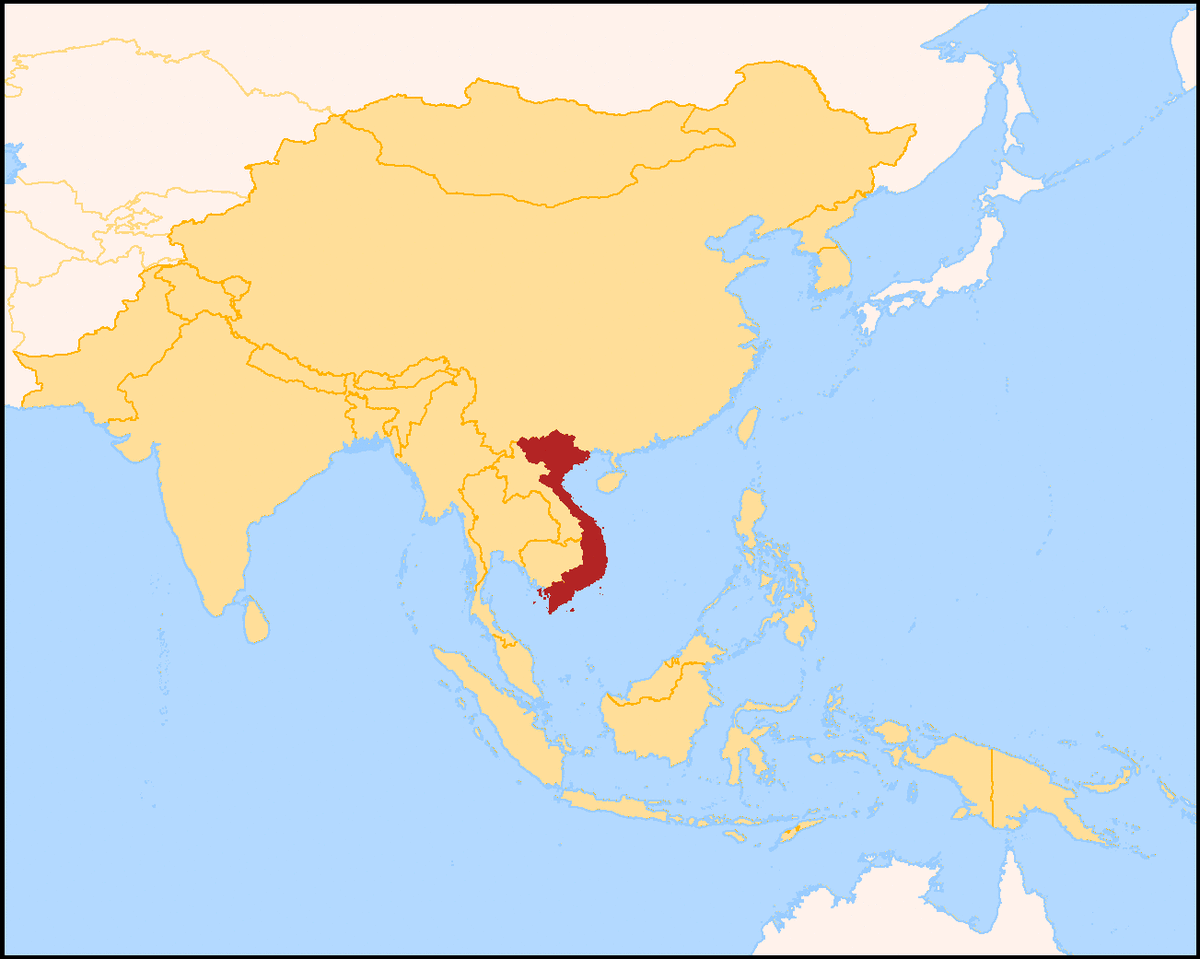External Strategic Environment
Report on Contemporary External Strategic Environment
Introduction
There have been numerous changes in the hospitality industry that have been impacting firms to certain levels. Apart from the persisting competition in the prevailing market scenario, the hospitality industry is going through major changes due to several prevailing factors. These factors include the change in behavior and expectations of guests, the advancement of technology in the industry, and ‘one size does not fit all’ service delivery. It has been foreseen there are changes in the market that have been shaping the hospitality industry. Traditionally, guests used to be able to pick up their phones and reserve a hotel or use a local travel agency to book a hotel, but currently, online distribution systems like Expedia and Kayak are great intermediaries that have done away with the previous system (Boston Hospitality Review, 2017). There is a need to analyze possible future outcomes of the hospitality industry. There are no established methods of research that could predict the future precisely. However, through trend research that is not science-based, researchers can be able to determine plausible outcomes of the hospitality industry. Airbnb is one of the most famous online hospitality services that provide cost-effective accommodation (19 types of Business Industries, 2020).
The purpose of this report is to analyze trends in the hospitality industry. It also identifies plausible future scenarios and lays weight on one of these mentioned scenarios. These scenarios are based on a thorough analysis of current market trends and take into account informed opinion about potential future developments.
Discussion
As per the Lausanne report (Lunius et al., n.d), megatrends, sub-trends, and forces that will help shape the future of the industry revolve around four pillars of the hospitality environment which include people, business, technology, and environment. The report highlights possible future scenarios awaiting the hospitality industry. It explains the interaction between the different drivers of change that affect the evolution of the hospitality industry. While some of these trends will lead to profound changes, the industry has no choice but to embrace them.
Four Possible Scenarios
A shift in Market Power
There will a shift in market power. Globalization will either fragment or consolidate the hospitality industry. Both can however co-exist creating risk factors as well as opportunities for the industry at the same time. The hospitality industry in the United States is currently consolidated. The idea behind consolidation is that the dominant players in the industry become too big to fail, and in case of stiff competition, disruptors and innovators are either destroyed or acquired by the dominant leaders. Consolidated chains such as Marriot International Inc. promote horizontal integration via mergers and acquisitions, which allows them to extend their supply capabilities locally and globally (Lunius et al., n.d). Players in a consolidated hospitality industry benefit from a few characteristics such as shareholder value, economies of scale, and the power of negotiation. Due to the economies of scale, an increase in market share will reduce costs by streamlining transaction costs, concentrating purchase volumes, lowering commissions, and sharing staff resources. By the year 2030, global market consolidation will be both unprecedented and a perfectly possible scenario, and it will be evidenced by the domination of a few major brands in competition with even fewer reservation platforms. The Marriot-Starwood merger will likely take advantage of an increased loyalty membership and portfolio of hotels to multiply the proportion of bookings done through its distribution channels (Batrouni, 2016).
On the other hand, globalization may push the consolidated segments to split and remain fragmented. Fragmentation makes hotel businesses seem agile, more authentic, and earn themselves a better reputation. The agility to adapt to the wishes of the guest will earn fragmented units high-profit returns since they have more freedom and flexibility than standardized branded ones that are bound to centralized policies.
An Emotional Experience
Even with the introduction of the concepts of high tech and high touch, it is evident that in that world of technology, people still long for personal human contact. Evaluating the hospitality environment using people, business, technology, and environment indicates that people’s perceptions are part of an irreversible trend (Lunius et al., n.d). It is worth noting that improving guest experience which involves their perceptions and emotions, will be the main challenge of the hospitality industry in the future, and guests tend to react in various ways. In years to come, the Internet of Things will make physical devices like processors intelligent by connecting their infrastructure zones. The more defined these processes prevail, the greater the value for hotel operations and customers will be. Standardization of Customer Integrated Business Processes will be vital hotel operations automation.
In the current and future technological era, the ability to provoke and track emotions will be the threshold to determine the success of the hospitality industry. Over the last couple of decades, emotions research has been included in various disciplines, which points to the need of the hospitality industry to fully embrace the revolution. A quality level of emotional intelligence is essential for fruitful service delivery. Hotel customers are and will, especially those of high-end establishments, become jaded and even harder to satisfy (EHL Insights, 2020). Hospitality staff will need to become stage directors thus providing an individual memorable guest experience.
Perhaps also in line with emotional well-being, there is a need for holistic well-being. Hotels can not only target a positive impression on the guests’ emotions but physical well-being too. Since the cost of healthcare is on the current rise, prevention and wellness programs are also on the rise thus it will be profitable for the hospitality industry to incorporate guests’ holistic well-being as well. People are constantly addressing various health concerns such as food allergies, stress reduction, weight loss, and disease management. The hospitality will in the future need to take advantage of this opportunity since health care is moving out of its clinical setting into peoples’ everyday lives (Lunius et al., n.d).
Smart Technology, Smart Hotels
The process of urbanizations is rapidly increasing. It is estimated that by the year 2030, more than 60% of the population will be residing in cities. This trend will ultimately call for the development of smart cities. The infrastructure of these cities will hopefully be digitized, decentralized, and adaptive. And since such development cannot be mastered by individual cities, there is a need to create smart city clusters. This will enable decentralized resources, connected safety, and security infrastructure. In all the discussions about Customer Relationship Management, personalization, and social networking, it is often forgotten that in most cases, travelers chose destinations and not specific hotels (Lunius et al., n.d). Therefore, hotel chains need a superior locational strategy. The hospitality industry’s collaboration with smart cities is vital since hotels are supposed to be influential partners in various initiatives and urban policies. The modern green initiatives of cities will eventually impose a framework of green efficiency measures on buildings such as hotel operators or offices. Consumers want to satisfy themselves with green hotels and one is willing to pay a premium for a greener lifestyle (Roy & Kumar, 2018). Incentives demanding for the hospital industry to take an autonomous approach include scarcity of resources, environmental issues, and management of emergencies. There will be a need for hotels to be energy self-sufficient, and they must be able to be independent, not least due to rising costs for resources such as water. There will be a need for new and efficient methods of farming that use fewer resources and produce less waste, due to the rapid shortage of arable land and the rise of modern infrastructure. This includes vertical farming which has already gained roots in the USA, Russia, Canada, South Africa, Japan, and Germany (Lunius et al., n.d). Energy-efficient technology such as HVAC will enable vertical farming in hotel buildings with large facades. As the vertical farming technology is still in its developmental stages, the hospital industry should anticipate its full capabilities and make use of it to enhance the guest experience, with freshly harvested food items. Hosting structure for vertical farming are also diverse and range from specially-built buildings to shipping containers and from reused pre-existing buildings to cabinets no larger than a standard refrigerator (Santin et al., 2020). Cities that are in less developed countries should embrace the idea of being smart to manage their resources.
The Scope of Knowledge
The major driving force for the hospitality job market is emerging markets such as India, South Africa, Thailand, and China, where economic development and higher incomes drastically boost service sectors, and demand for the educational background will highly increase. According to the Lausanne Report (Lunius et al., n.d), economic success in the hospitality industry will rely on the effective use of intangible assets such as creativity, knowledge, skills, and innovation that will create a competitive advantage. People are the most important asset for any hotel company and thus need sound investments. In the next couple of decades, there will no longer be sector boundaries. There will exist a more automated hospitality industry that will introduce hedonistic engineers and graduates from humanistic colleges. Hospitality will need to bridge the gap between the business demands of the society since both investors and society will expect to see a return.
From the above discussion, a question arises; which one between empathy and efficiency will outweigh the other? The success of a hospitality enterprise depends on the quality of its employees. Adept general managers with a notable degree of empathy are not only suitable for the occasion but also memorable. The key condition that harnesses empathy in host-guest relationships materializes when there is an opportunity to engage in bilateral conversation in scenarios where power differences are reduced (Zamanillo et al., 2019).
Digital labor platforms can assist to recruit people and propel their careers, and they can arrange for hospitality companies to multiply the productivity of labor. Hospitality associations will have a chance to prove their added value by integrating fast labor platforms to be shared by their staff, therefore providing a real opportunity to change the way they recruit, develop and engage employees (Lunius et al., n.d). Due to pressures such as cost, the industry will need to explore the idea of automating tasks such as accounting, marketing, and finance. There are current robots that are engaging in services such as chatting to customers and guests. By 2030, robots will make up about 25% of the workforce in the hospitality industry (Bowen & Morosan, 2018). Such transformation, needless to say, will require efficient people and hospitality engineers to improve their IT skills.
The Most Plausible Scenario?
In the researcher’s opinion, smart technology and smart hotels are the future of the hospitality industry. Currently, millennials are occupying a larger percentage of the US workforce. When it comes to environmental matters, millennials are currently demanding that hotels go green (Social Tables, 2020). This age group is most likely to support brands with effective management of environmental issues and expect the brands to not just manage it but also to communicate it. This has been solved by the previously discussed smart vertical farming.
Being connected to smart infrastructure will enable hotel premises to optimize their utility management to increase profitability and reduce emissions simultaneously. Regional city airports could become extinct in the future, and numerous airport hubs will be linked to high-speed ground transportation to connect city clusters (Lunius et al., n.d). Smart technology will pave the way for smooth door-to-door travel and provide individual security. There is a possibility that international travel will increase as domestic travel decreases since most individuals will be operating from home.
Project teams from various states will professionally collaborate, which will be a chance for the hospitality industry to provide office-like workspaces and services. All aspects of travel such as reservation platforms, mobile ticketing, payments, transparent data analytics, checking in and out as well as convertible loyalty systems, will all be inter-connected and inter-dependent like a web system. According to Buhalis & Leung, 2018, smart hotel models enable applications within the hospitality ecosystem and sub-ecosystems to be interconnected and interoperable. It is such a smart hospitality ecosystem that adds value to all stakeholders. Internal data from applications among every stakeholder, consolidated with external environment context form the hospitality major data on the cloud that allows staff to use business intelligence analysis to generate possible scenarios that promote the performance of revenue management. The characteristics of smart services that include the intelligent, anticipatory, and adaptable use of data and technology, allows customers to experience services that previous conceptualizations of provided service experience could not capture (Kabadayi et al., 2019).
Conclusion
Various other industries all over the world have experienced a long change in the global market. Therefore, it is time the hospitality industry faced this trend and embraced the potential of consolidation by mergers and acquisitions. Digitization is currently influencing the hospitality industry, which calls for the operators to fully embrace the change.
References
19 types of business industries - Different types of industry. (2020, May 11). Marketing91. https://www.marketing91.com/19-types-of-business-industries/
Batrouni, M. (2016, January 6). Hotel consolidation. Corporate Travel Management Consulting | Advito. https://www.advito.com/hotel-consolidation/
Bowen, J., & Morosan, C. (2018). Beware hospitality industry: the robots are coming. Worldwide Hospitality and Tourism Themes.
Buhalis, D., & Leung, R. (2018). Smart hospitality—Interconnectivity and interoperability towards an ecosystem. International Journal of Hospitality Management, 71, 41-50.
Change in the hospitality industry: New paradigms, frames, and perspectives | Boston hospitality review. (2017, June 12). Boston University. https://www.bu.edu/bhr/2017/06/12/hospitality-change-paradigm-and-perspective/
EHL Insights. (2020). Why emotional intelligence is important in tourism & hospitality. https://hospitalityinsights.ehl.edu/emotional-intelligence-tourism-hospitality
Kabadayi, S., Ali, F., Choi, H., Joosten, H., & Lu, C. (2019). Smart service experience in hospitality and tourism services. Journal of Service Management.
Lunius, R. F., Hartmann, M., & Bruchez, E. (n.d.). LAUSANNE REPORT, shaping the future of hospitality- outlook 2030 [Doctoral dissertation]. https://info.ehl.edu/hubfs/lausanne-report/EHL-Lausanne_Report-thesis_1.pdf?hsCtaTracking=c941377f-6c36-45a0-9e90-845822cb22a4%7C6d31824f-f1b2-44f2-9100-84eb1ace1765
Roy, S., & Kumar, A. (2018). A study on green marketing practices in 5-star category hotels of New Delhi. TRANS Asian Journal of Marketing & Management Research (TAJMMR), 7(2), 28-36.
Santini, A., Schneider, M., & de Lemos, V. G. (2020). The Crop Growth Scheduling Problem in Vertical Farming.
Social Tables. (2020, March 10). Must-know hospitality trends for the next 5 years. https://www.socialtables.com/blog/hospitality/hospitality-industry-trends/
Zamanillo Tamborrel, L. L., & Cheer, J. M. (2019). harnessing empathy in hospitality and tourism: are conversations the answer?. Hospitality & Society, 9(1), 53-70.
This content is accurate and true to the best of the author’s knowledge and is not meant to substitute for formal and individualized advice from a qualified professional.
© 2020 Jack Walter








